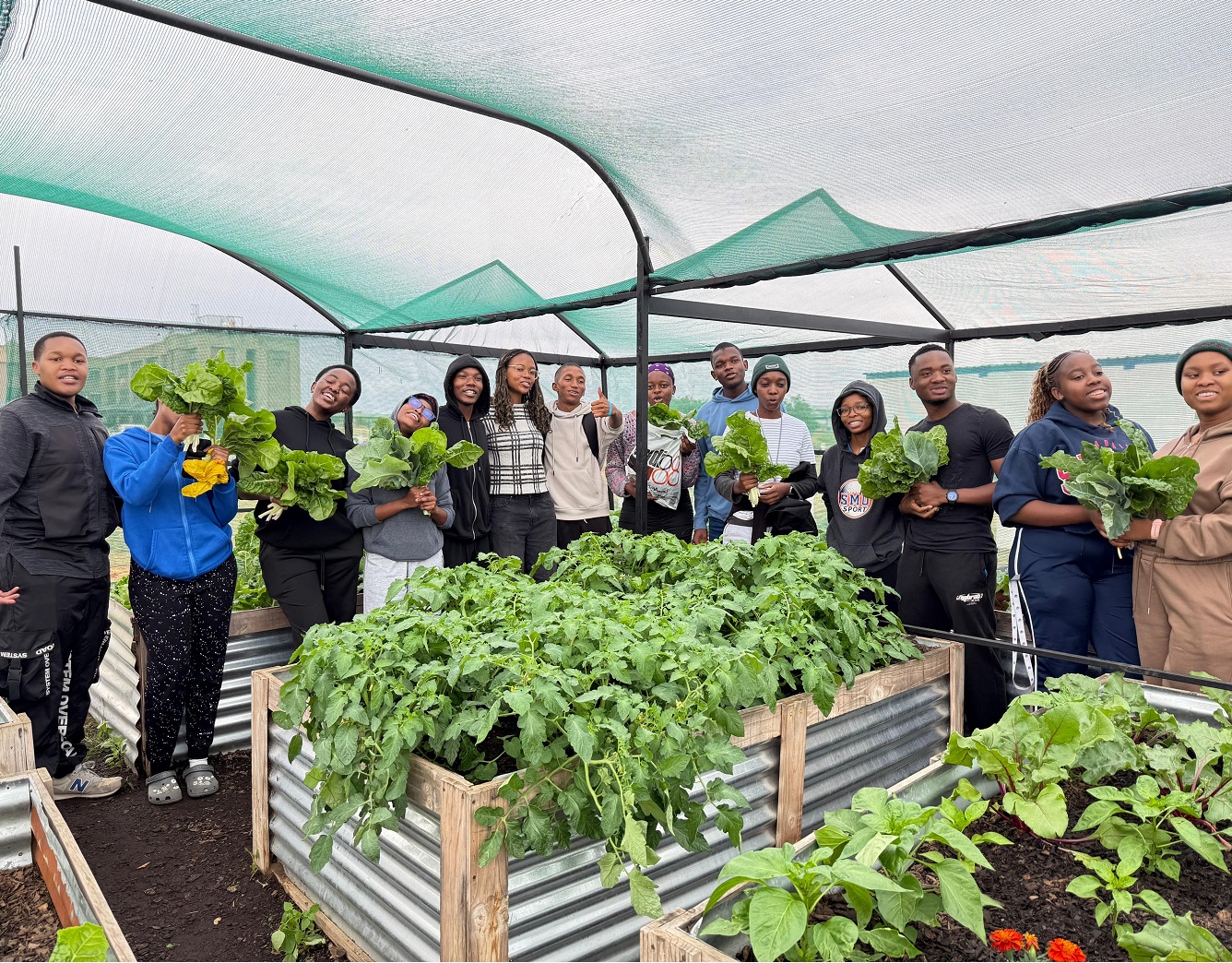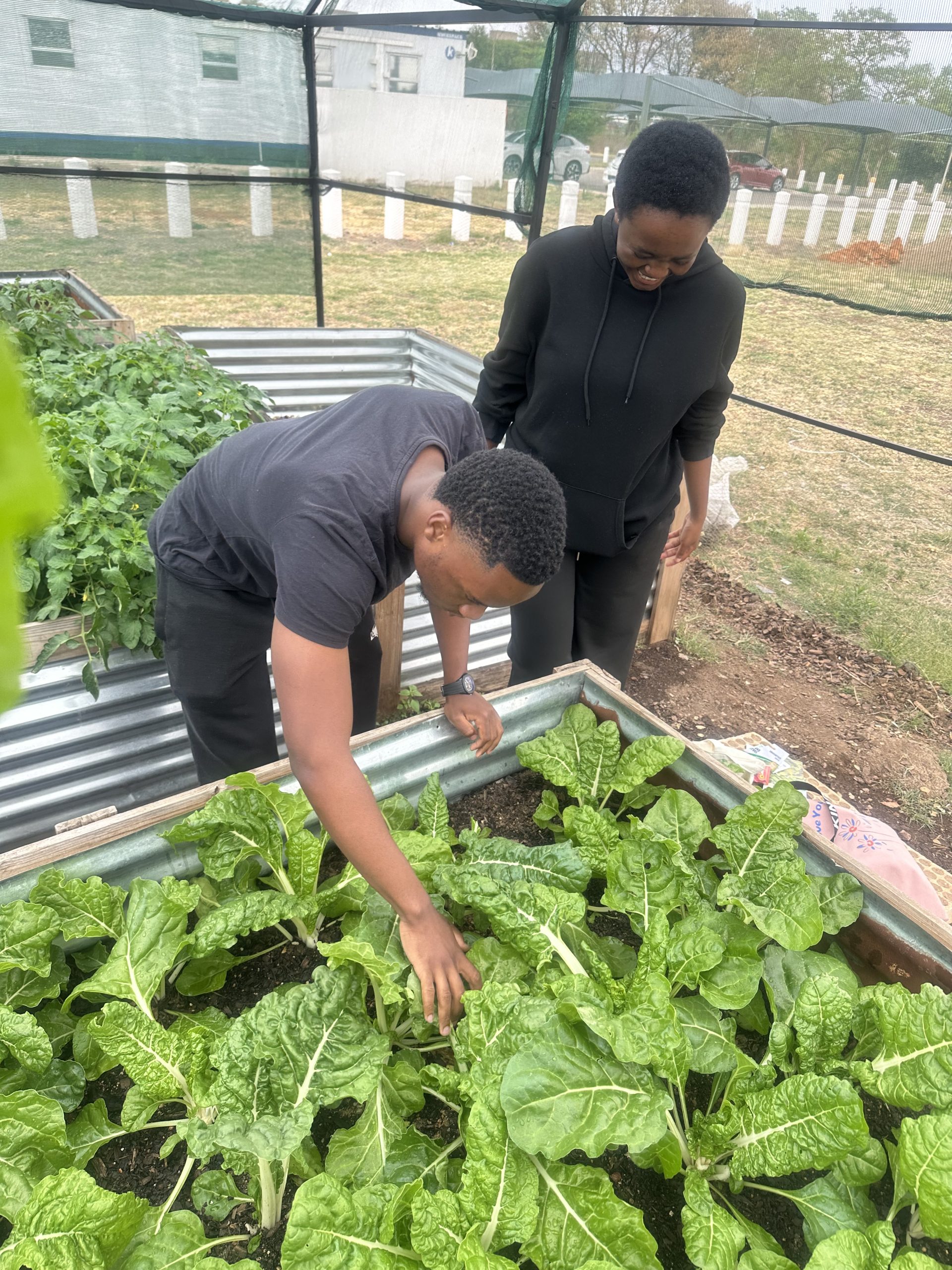Sefako Makgatho Health Sciences University (SMU) has breathed new life into its Interprofessional Garden through the Green Campus Initiative (GCI), officially relaunched on 20 August 2025 under the theme “ReRoot – Growing Sustainability, Health, and Collaboration.” The event united students, staff, and partners in a shared vision of environmental stewardship, food security, and holistic well-being.
 From the moment guests arrived, the energy was purposeful. The Green Welcome set the tone for an afternoon rooted in action and collaboration. Opening the programme, GCI Chairperson Atlegang Leeuw called for student-led accountability in sustainability efforts. “Sustainability starts with us,” she said. “As future health professionals, we have a duty to create a healthier environment for generations to come.”
From the moment guests arrived, the energy was purposeful. The Green Welcome set the tone for an afternoon rooted in action and collaboration. Opening the programme, GCI Chairperson Atlegang Leeuw called for student-led accountability in sustainability efforts. “Sustainability starts with us,” she said. “As future health professionals, we have a duty to create a healthier environment for generations to come.”
Interprofessional Education and Collaborative Practice (IPECP) Coordinator Thokozile Kgongwana reinforced this call, highlighting that environmental change depends on unity across disciplines. “The garden shows what’s possible when faculties and students work together,” she said. “Collaboration is where real impact begins.”
Garden Supervisor Mpho Mmako guided participants through an interactive tour, recounting how the initiative had grown from a modest idea into a “living classroom” blending science, health, and community. “Our goal is simple,” she said. “We want to cultivate learning while nurturing food security and environmental awareness.”
The City of Tshwane’s representative, Kamogelo Aphane, underscored the importance of partnerships. “When institutions and communities work hand in hand, change multiplies,” he said. “Projects like this garden show how collaboration can build sustainable futures.”
 To deepen engagement, the municipality invited students to complete a sustainability questionnaire, offering prizes that sparked discussion on local environmental issues and everyday action.
To deepen engagement, the municipality invited students to complete a sustainability questionnaire, offering prizes that sparked discussion on local environmental issues and everyday action.
Adding a motivational spark, Miss Earth South Africa 2nd Runner-up and Ms Water titleholder Tshiamo Morare reminded participants of the collective power of small actions. “Every tree planted, every sustainable choice—each one adds up,” she urged. “Change starts with awareness and commitment.”
Her message reinforced the garden’s ethos: small efforts, multiplied across communities, can create lasting environmental impact.
The relaunch aligned with the We Are Nature Youth Biodiversity Challenge, a collaboration between the United Nations Environmental Programme (UNEP) and the Wildlife and Environmental Society of South Africa (WESSA). This initiative connects young South Africans to the Global Biodiversity Framework’s Targets 21 and 22, promoting inclusive participation and sustainable lifestyles.
More than 50 young people participated in the relaunch, exploring the Biodiversity Toolkit and signing pledges to protect ecosystems. The event concluded with a collective Garden Pledge, as students and staff vowed to conserve water, protect biodiversity, and support eco-conscious practices across campus.
The Interprofessional Garden now stands as a dynamic hub for sustainability learning and community impact. Future sessions will invite students to participate in planting, research, and produce distribution to food-insecure households—cementing SMU’s role as a university that doesn’t just teach sustainability, but lives it.
By Dimakatso Modise



